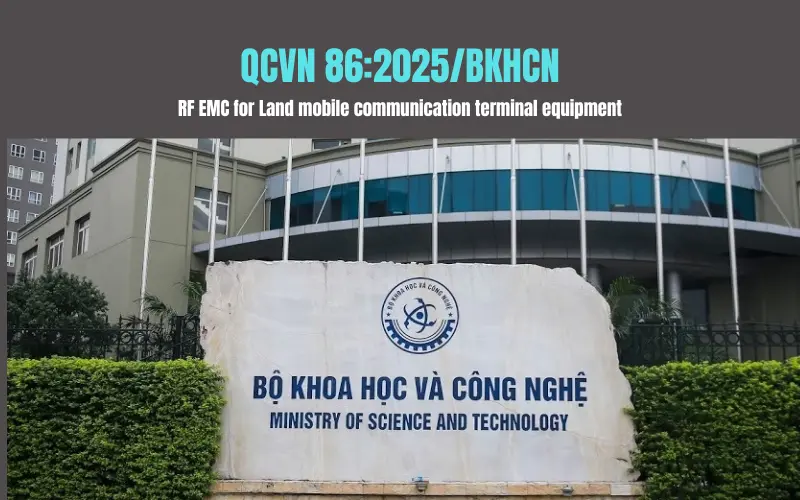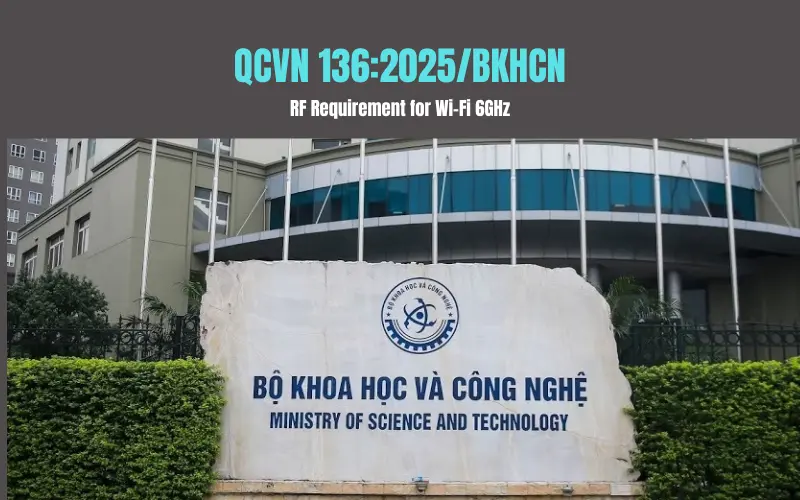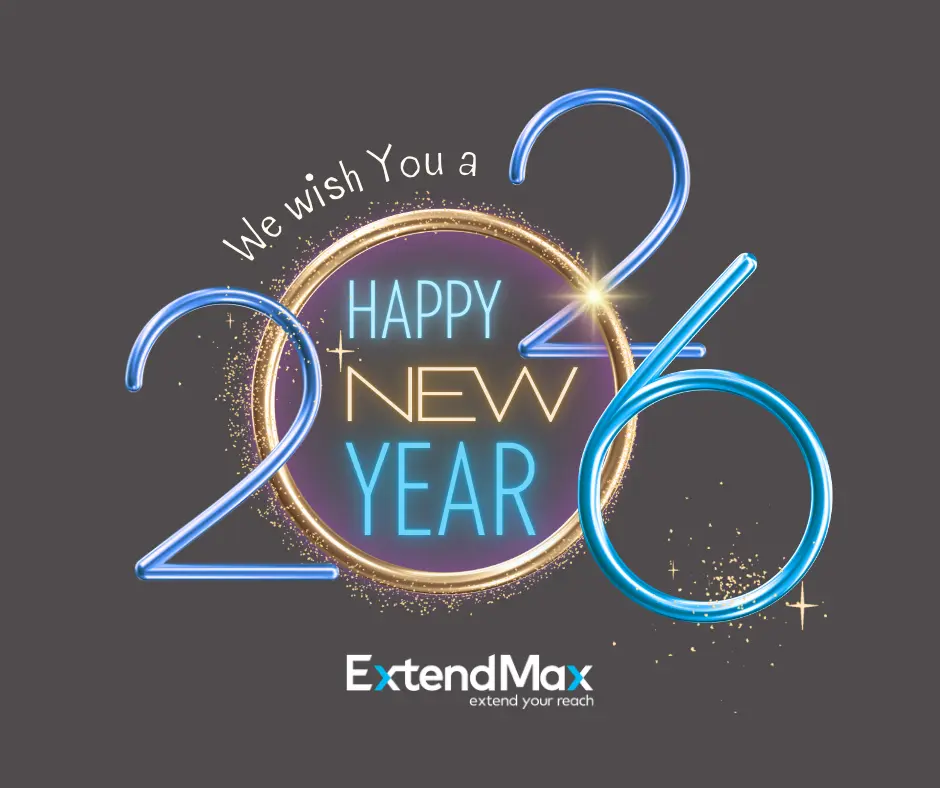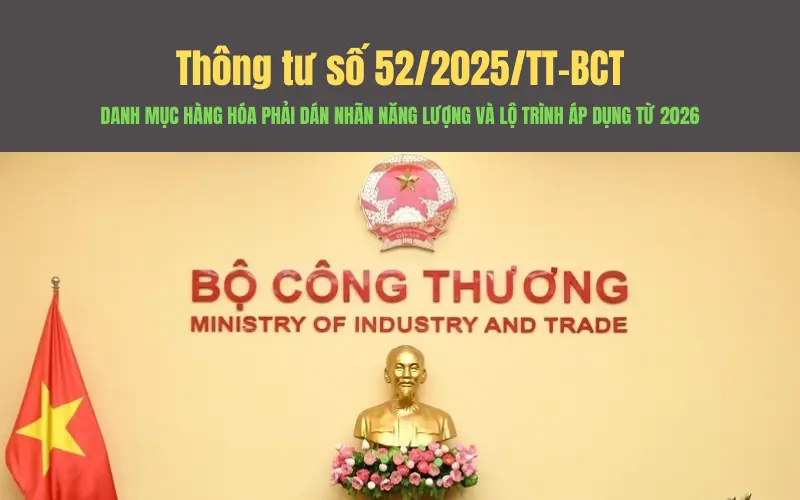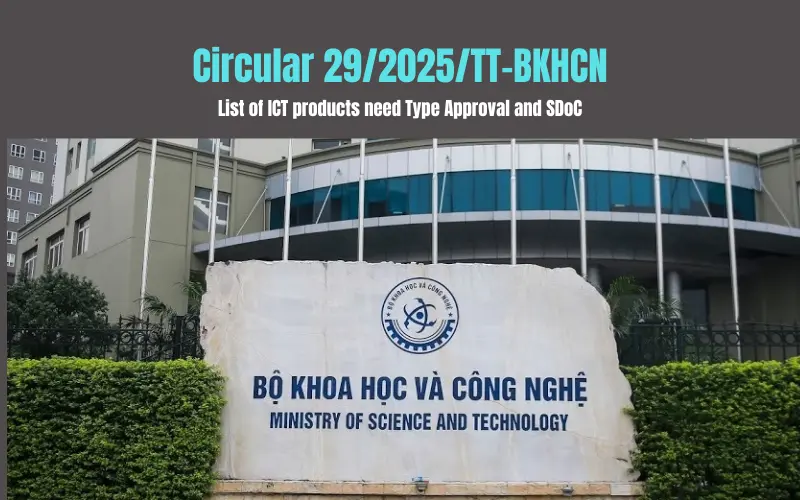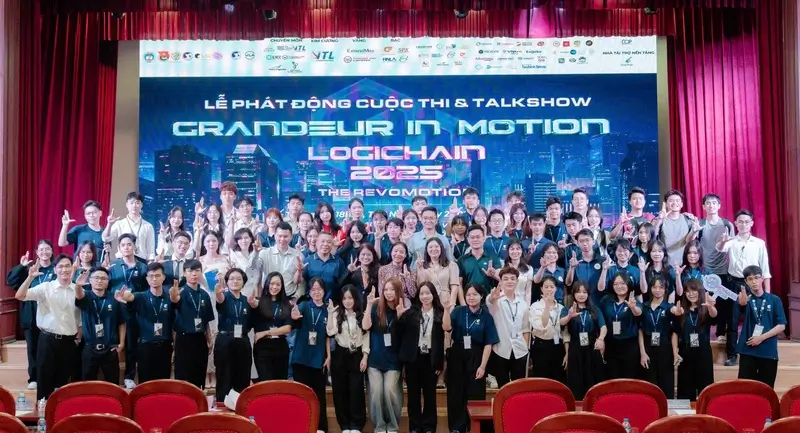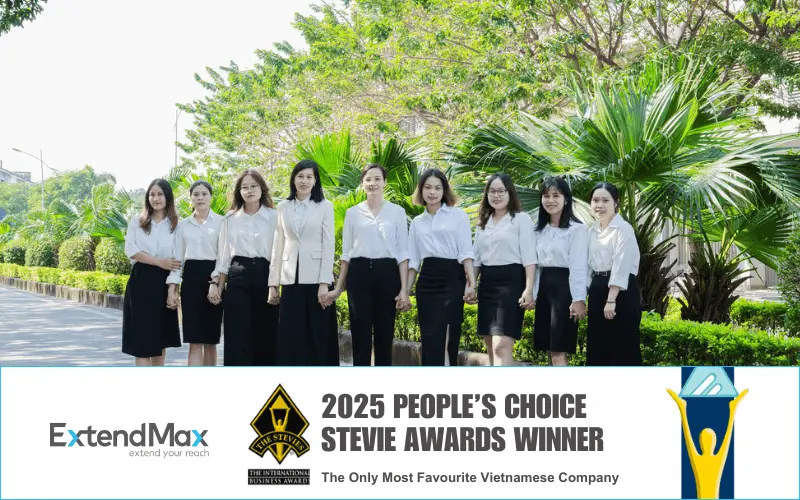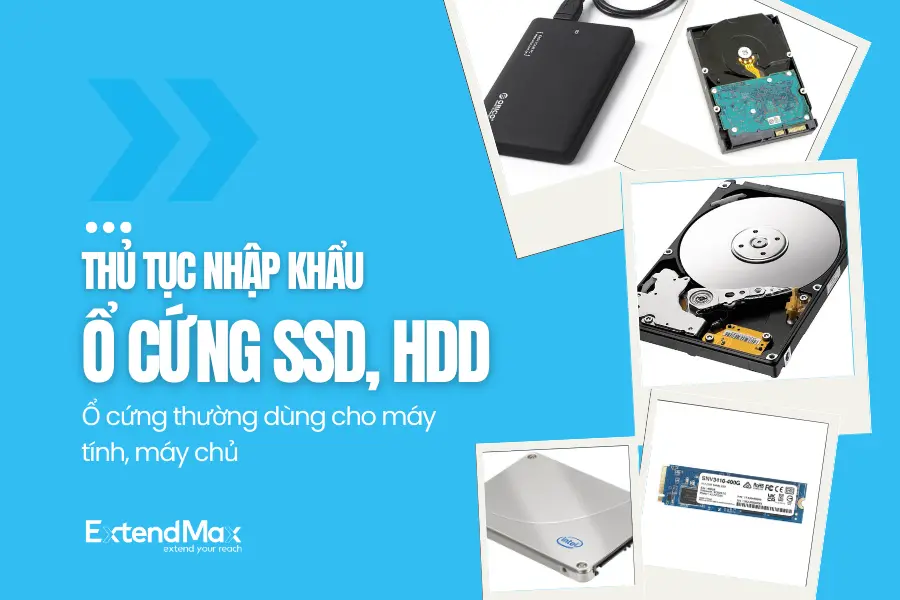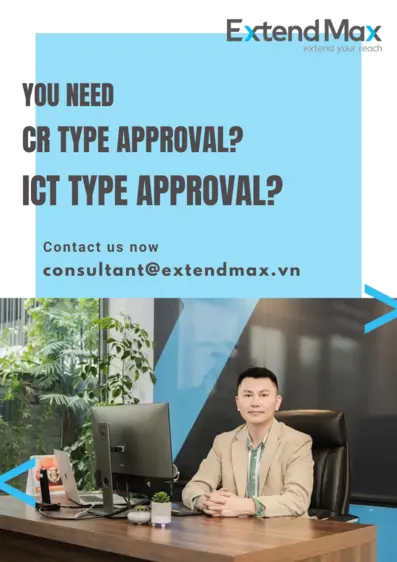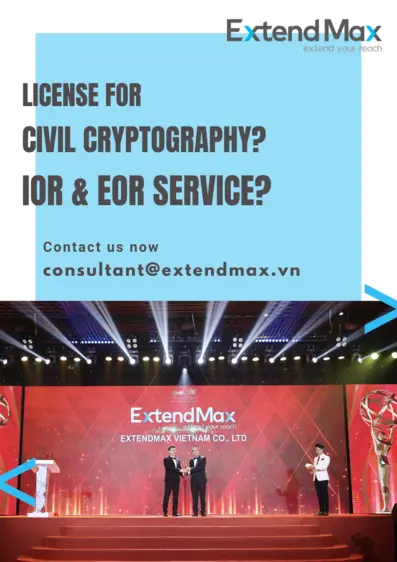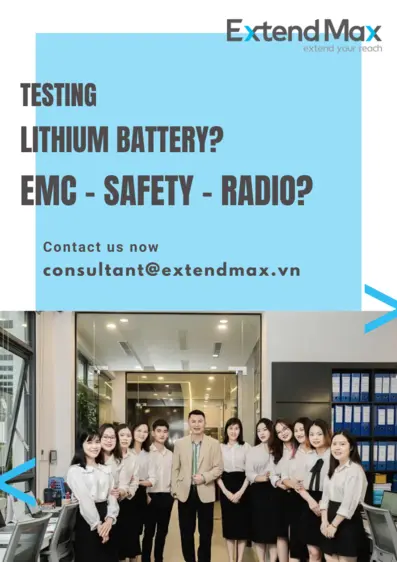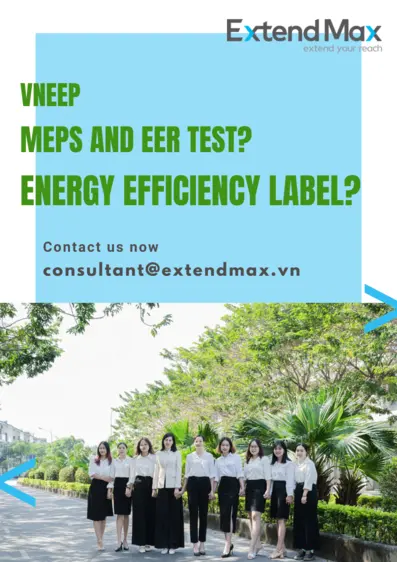The remote control devices with HS code belongs to the category that requires a civil cryptography license and specialized quality inspection by the Ministry of Information & Communications. Therefore, many businesses have encountered difficulties when importing this item. As a result, ExtendMax provides a detailed guide on the import procedures for remote controls to help you resolve any issues with export-import documentation, handle difficulties in customs clearance, and have a comprehensive view of the process applicable to this type of goods. The article includes in-depth instructions on specialized inspection procedures, conformity certification, and applying for a civil cryptography license for remote controls, along with practical results that ExtendMax has helped customers achieve.
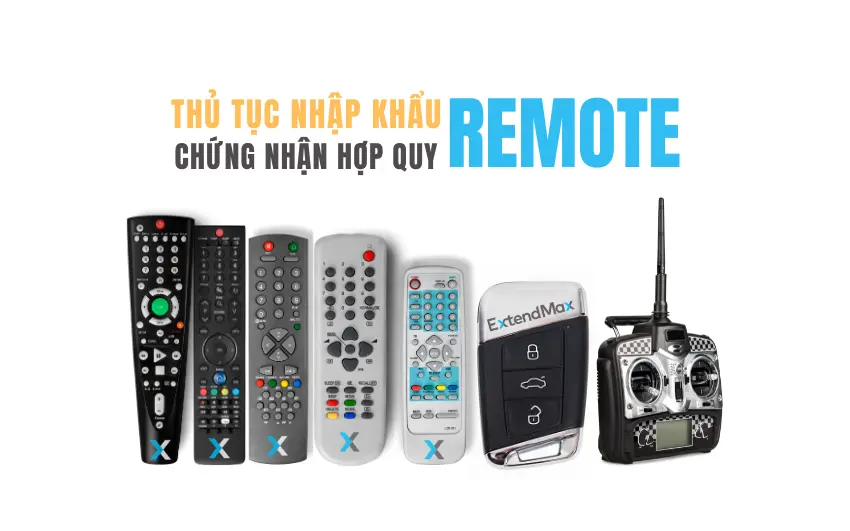
What is a remote control device?
A remote control is an electronic device used to operate a machine or device wirelessly from a distance, typically using infrared (IR) signals or radio frequency (RF) to connect with the device it controls. Remote controls are commonly used with TVs, electric fans, air conditioners, garage doors, drones, motorcycles, cars, and many other electronic devices.
There are many ways to classify remote controls; however, when handling import procedures, we will focus on two cases: remote controls that require specialized inspection and those that do not.
Currently, the types of remote controls that require specialized inspection are mainly wireless remote control devices, including some typical products: remote controls for aerial models such as model airplanes; remote controls for ground and water models such as model cars and model ships; industrial and civilian remote controls such as garage door openers, smart keys for motorcycles, and cars.
Summary of specialized requirements for importing remote control devices
| Specialized Policy | Quality registration/ICT conformity | Civil cryptography |
| Applicable Cases | Wireless remote control devices (smart keys for cars and motorcycles, crane controllers, garage door remote controls, remote controls for flycams or drones...) | Products with wireless security functions |
| Excluded Cases | Remote controls that do not use radio waves, are not classified under Group 2 goods according to Circular 02/2024/TT-BTTTT (remote control devices using infrared, TV remote controls...) Devices using 2.4GHz or 5GHz radio frequencies with a transmission power of less than 60mW eirp (remote controls using Bluetooth or low-power WiFi) | HS codes, product descriptions, or security functions not listed under the civil cryptography product category |
Determining whether a product requires a civil cryptography license is quite complex and demands substantial technical expertise and practical experience. Please contact ExtendMax for expert consultation and product assessment.
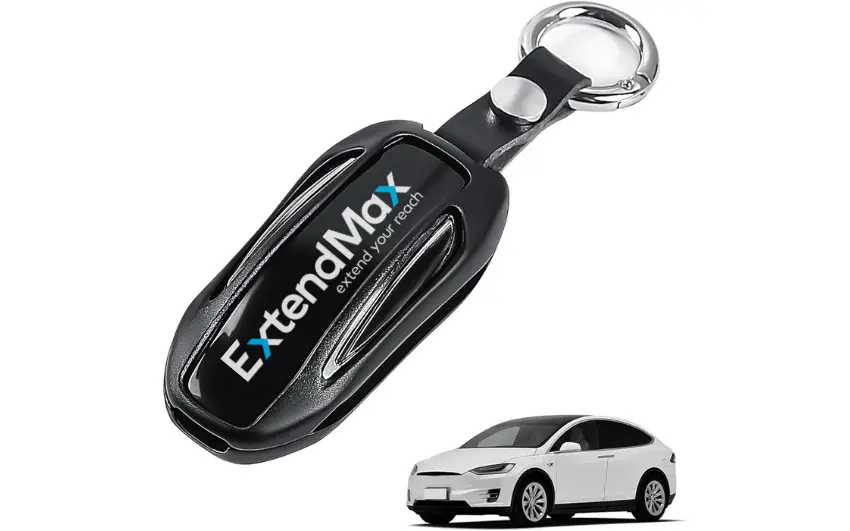
HS codes and tax rates for remote control
Classifying and identifying the correct HS code is the crucial first step when handling the import procedures for remote controls. Choosing the right HS code helps you determine the applicable tariffs and specialized policies for the type of remote control you wish to import.
Below is the reference information on HS codes and import tariffs for remote control devices:
| HS code | Description | Normal Import Tax Rate (%) | Preferential Import Tax Rate (%) | VAT (%) |
| 8526 | Radar, radio navigational aid apparatus, and radio remote control apparatus |
|
|
|
| - Other types: | ||||
| 8526.92.00 | - - Radio remote control apparatus | 5 | 0 | 10 |
| 8543 | Electrical machines and apparatus, having individual functions, not specified or included elsewhere in Chapter 85 | |||
| 8543.70 | - Other machines and apparatus: | |||
| - - Remote control apparatus, other than radio remote control apparatus | ||||
| 8543.70.29 | - - - Other types | 5 | 0 | 10 |
Import dossier for remote control devices
The import dossier for remote controls includes the following documents:
- Customs declaration
- Commercial invoice
- Bill of lading
- Packing list
- Sale contract
- Certificate of origin (C/O) (if available)
- Catalog (if available)
- Registration dossier for quality inspection of imported goods with confirmation from the Department of Telecommunications
For remote control devices with wireless security functions, businesses need to obtain Vietnam Civil Cryptography Trading License and Import Permit for encryption products and services in advance to avoid incurring storage fees and administrative penalties for opening the declaration later than 30 days. The process of applying for these two civil cryptography licenses can take up to 3 months.
Regulations and policies for importing remote control
The procedures and policies for importing remote controls are regulated and managed by the following legal documents:
| Issuing Authorities | Legal Documents | Applicable Content |
| Ministry of Industry and Trade | 36/2019/TT-BCT | Product and goods quality management |
| Ministry of information and Communications | Conformity certification and declaration according to QCVN 73:2013/BTTTT or QCVN 55:2023/BTTTT | |
| Quality inspection and certification procedures, conformity declaration | ||
| Methods for conformity certification and declaration | ||
| 11/2018/TT-BTTTT | List of used information technology goods prohibited from import | |
| Government | 32/2023/NĐ-CP (amending and supplementing Decree 53/2018/ND-CP and Decree 58/2016/ND-CP) | List of civil cryptography products requiring import licenses |
| 43/2017/ND-CP | Labeling requirements for goods |
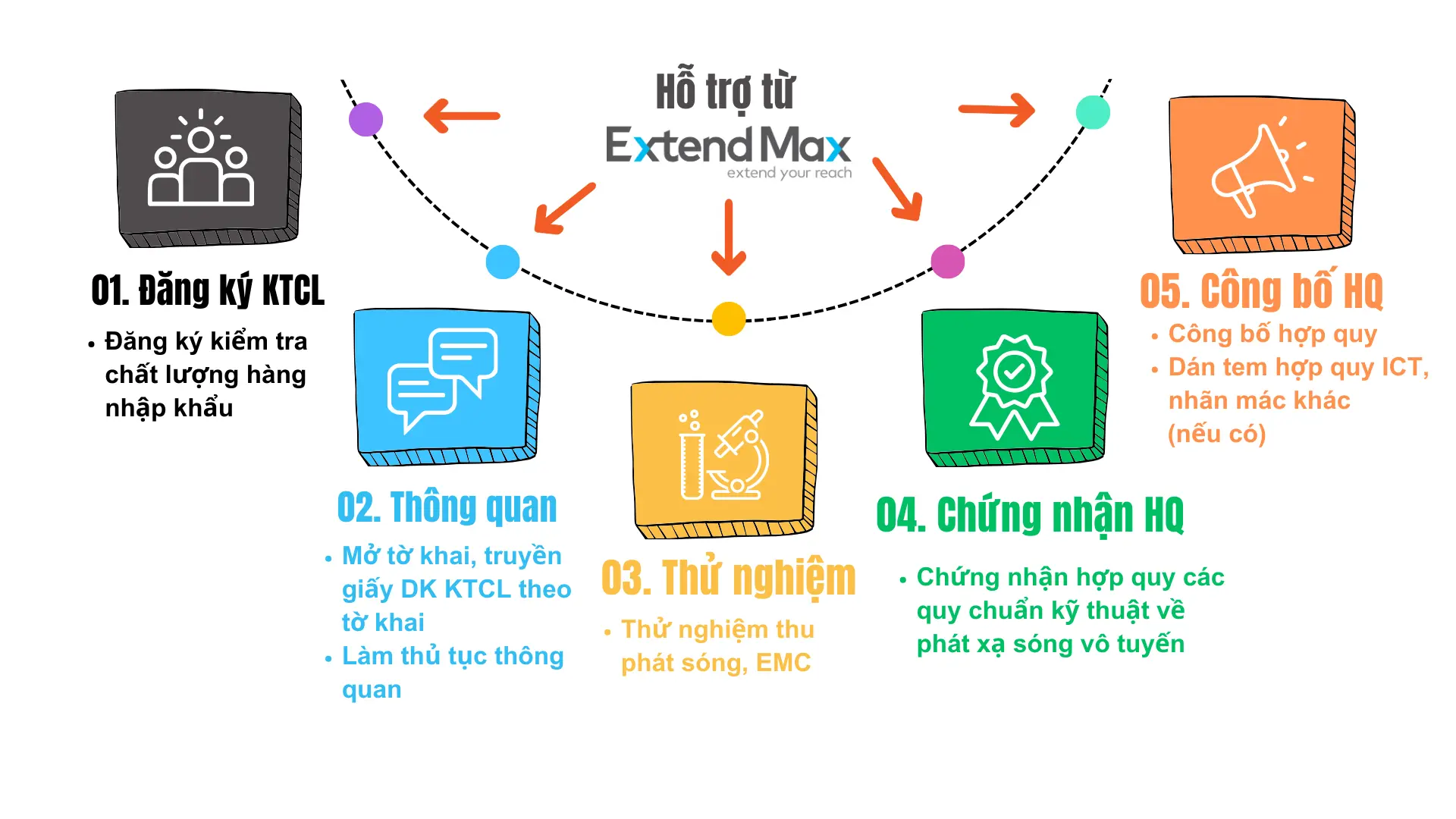
Import procedures for remote control
Step 1: Register for specialized inspection for remote control devices
Register for state inspection of the quality of imported goods
| Documents / Materials to prepare | Registration subject / Applicable standards | Cost | Processing time | Receiving office |
| 1. Export-import document set, including Commercial Invoice, AWB or B/L, P/O or contract 2. Catalogue / datasheet 3. Quality inspection registration form (Paper registration, online public service not yet applied) | Register according to the applicable section for remote control devices in Appendix I - Circular 02/2024/TT-BTTTT and all corresponding sections with the transmission-reception functions that the device supports. | No official fee | 2-3 working days | Department of Telecommunications or authorized centers in Da Nang and Ho Chi Minh City:
|
Step 2: Open the customs declaration, clear the shipment
| Documents / Materials to prepare | Processing time | Receiving office | Notes |
| 1. Export-import document set, including Commercial Invoice, AWB or B/L, P/O or contract, Packing List, CO (if available) 2. Quality inspection registration form signed by the Department of Telecommunications Transmit the above documents according to the customs declaration | 2-5 working days, depending on the declaration channel (green, yellow, red) and whether physical inspection is required. | Customs sub-department at the port of entry or the Customs sub-department managing the business's registration location | If there are no issues related to price or intellectual property protection, the goods will be cleared immediately. Businesses do not need to perform procedures for bringing goods for preservation. |
Step 3: Measurement and testing of transmission-reception, EMC
| Documents / Materials to prepare | Registration subject / Applicable standards | Cost | Processing time | Receiving office |
| 1.Catalogue/Datasheet 2. 01 ~ 02 sample products 3. Fill out the test registration form |
- Devices operating at frequency range 9 kHz - 25 MHz: QCVN 55:2023/BTTTT - Devices operating at frequency range 25 MHz - 1 GHz: QCVN 73:2013/BTTTT - QCVN 96:2015/BTTTT
|
Costs depend on the price list of the testing laboratory and applicable standards. There is no common price applicable to all types of remote controls. Normally, the testing cost for a car smart key is about 10~20 million VND.
| 2~4 weeks depending on the product and each stage | Testing laboratories designated or registered with the Ministry of Information and Communications. E.g., Frequency Technical Center, VNCA, DT&C, Quatest 3... |
Step 4: Conformity certification
| Documents / Materials to prepare | Registration subject / Applicable standards | Cost | Processing time | Receiving office |
| 1. Request form for conformity certification according to the certification organization's form 2. Business registration certificate 3. Technical documents (catalogue, datasheet) 4. Test sample information declaration form 5. Measurement and testing results of the device 6. ISO 9001 certificate of the manufacturing plant or import dossier 7. Some other forms in special cases | Register for conformity certification according to technical standards on radio emission | 3,800,000 VND ~ 4,550,000 VND depending on the number of standards (excluding VAT) | 2~3 weeks depending on the completeness of the dossier | Telecommunications Quality Measurement Center in Hanoi (VNTA building - Duong Dinh Nghe) or its branches in Ho Chi Minh City and Da Nang |
>>> SEE MORE: Detailed guidance on procedures, order, and methods for conformity certification
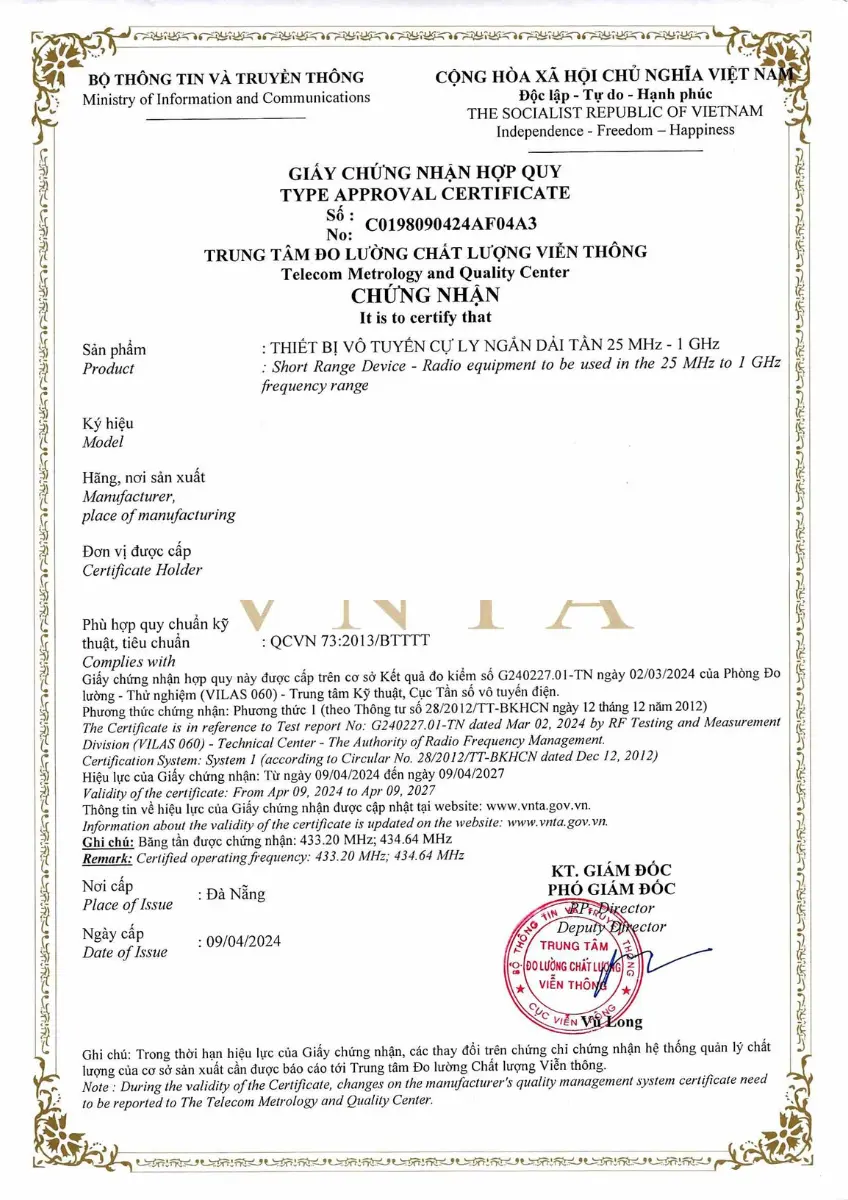
Step 5: Conformity declaration
Based on the testing results and the issued Conformity Certificate, businesses must proceed with the Conformity Declaration procedures at the Department of Telecommunications - MIC Vietnam.
| Documents / Materials to prepare | Registration subject / Applicable standards | Cost | Processing time | Receiving office |
| 1. Self-assessment of conformity (for imported products) or Conformity Declaration form (for domestically produced products) 2. Copy of quality inspection registration certificate of the imported batch 3. ICT seal sample for first-time importers or when there is a change in the seal sample 4. Product technical specifications documents (datasheet, specifications) 5. Conformity Certificate of the product (for transmission-reception products) 6. Test results | For imported products: Only need to self-assess for EMC standards For domestically produced products: Conformity declaration for all standards, including radio emission, EMC. | Imported goods: No fee Domestically produced goods: 150,000 VND (state fee receipt) | Imported goods: 1 working day Domestically produced goods: 5 working days | Department of Telecommunications (VNTA building) or branches of the Telecommunications Quality Measurement Center in Ho Chi Minh City and Da Nang |
Other Considerations When Importing Remote Control
In addition to the general principles when importing goods such as identifying the correct HS code, labeling goods, fulfilling tax obligations, and obtaining quality certificates, businesses should note the following when importing remote controls:
- Testing Time: The sample testing process takes a considerable time, ranging from 2 to 4 weeks. Therefore, businesses should import sample products in advance for measurement and testing.
- Obtaining Civil Cryptography Licenses Before Importing: The process of applying for business and import licenses is complex and can take up to 3 months. Businesses need to do this in advance to avoid incurring storage fees and administrative penalties for opening the declaration later than 30 days.
- Checking the Radio Frequency of the Device: Ensure that the type of remote control to be imported operates within the frequency range of 3 kHz to 300 GHz.
- Regarding QCVN 55:2023/BTTTT: The technical requirements under extreme conditions are not mandatory until June 30, 2025.
- Quality Inspection and Conformity Certification: This is conducted according to Method 1 - sample testing.
How Can ExtendMax Assist You With Import Procedures for Remote Controls?
With many years of experience from our lawyers/engineers, along with extensive and continuously updated knowledge of current regulations, ExtendMax will advise and provide services to carry out the necessary procedures to help you:
→ Legal Procedures Consultation: Including but not limited to Conformity Certification and Conformity Declaration to ensure your products are legally and compliantly marketed.
→ Exemption Letter: If your product does not require certification, ExtendMax supports businesses in submitting exemption documentation (no conformity certification required, no civil cryptography content).
→ Correct Standards Identification: Determine the necessary standards and regulations to be applied to the device, thus avoiding mistakes and saving time and costs.
→ Sample Product Testing Services: Conducted at ExtendMax's testing laboratory (VNCA lab) or at laboratories designated by the Ministry of Information and Communications.
→ Shortening Testing Time: Act on behalf of businesses to assist the testing laboratory in setting up test samples. Collaborate with the lab to handle any issues that may arise during testing.
→ Legal Documentation Preparation: Assist in preparing legal documents and sample materials required for conformity certification according to the certifying organizations' regulations.
→ Technical Documentation Preparation: Assist in preparing technical documents according to the Ministry of Information and Communications and certifying organizations' regulations on operational frequency bands, electromagnetic compatibility, etc.
→ Certification Process Tracking: Monitor the certification process, promptly responding to any requirements from certification centers.
→ Conformity Certification: Help businesses obtain conformity certification within the processing time frame of the certifying organizations.
→ Conformity Declaration and Quality Inspection: Assist in preparing the necessary documents and completing conformity declaration procedures and quality inspections for imported goods on behalf of businesses.
→ Entrusted Import Services: If businesses encounter difficulties or lack the necessary conditions for direct import, ExtendMax is capable of providing entrusted import services.
Follow us via FB FanPage or LinkedIn to stay updated with the latest information
Please leave a comment and share the article if you find it useful in your work.
↓ ↓ ↓ ↓ ↓ ↓ ↓



